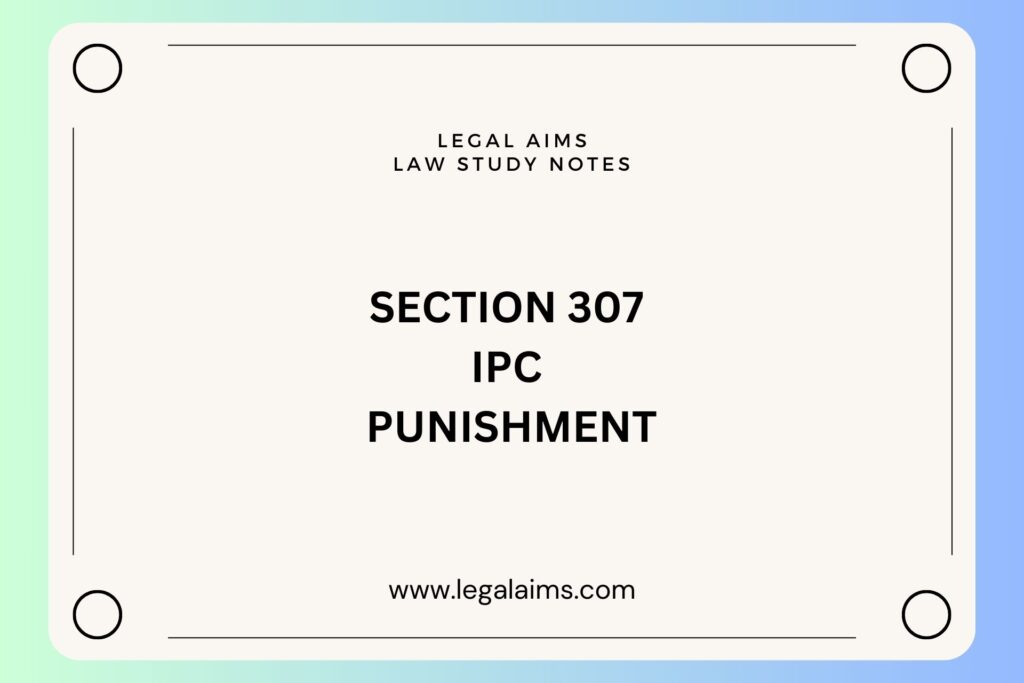Section 307 iPC punishment
Section 307 IPC Punishment
Under Section 307 of the Indian Penal Code (IPC), the offence of “Attempt to murder” is defined. The punishment for this offence is as follows:
Read More: Voluntary And Involuntary Consumer
Imprisonment: A person found guilty of attempting to murder under Section 307 IPC may be sentenced to imprisonment for a term that may extend to ten years.
Fine: In addition to imprisonment, the convicted person shall also be liable to pay a fine as part of the punishment.
It’s important to understand that this section is primarily concerned with the act of attempting to cause the death of another person. Even if the attempt to murder is unsuccessful, and the victim survives, the accused can still be charged and convicted under Section 307 IPC if it can be established that there was an intention to cause death or knowledge that the act was likely to cause death.
Case Law – Joginder Singh v. State of Punjab (2009)
In the case of Joginder Singh v. State of Punjab (2009), the Supreme Court of India reaffirmed the seriousness of the offence under Section 307 IPC.
The Court emphasized that this provision is designed to address situations where there is a clear intention to cause the death of another person or the knowledge that the act is likely to result in death.
The Court held that even if the attempt to murder does not result in the victim’s death and the victim survives, the accused can still be convicted under Section 307 IPC.
The punishment specified in this section, which includes imprisonment for up to ten years and a fine, reflects the gravity of the offence.
Case: State of Madhya Pradesh v. Bala @ Balaram (2011):
In this case, the Supreme Court of India reiterated the principles regarding the punishment under Section 307 IPC.
The Court emphasized that the intention to cause death or knowledge that the act is likely to cause death is a crucial element for a conviction under this section.
The Court also clarified that the offence is complete when the accused takes a step towards the commission of the offence, even if the ultimate death of the victim does not occur.
This decision reinforced the stringent punishment provisions associated with Section 307 IPC.
Case: Ghatu Rabari v. State of Gujarat (2015)
In this case, the Gujarat High Court ruled on a Section 307 IPC matter and held that the prosecution must establish the accused’s intention or knowledge that their actions were likely to cause the death of the victim.
The Court emphasized the need for a strong nexus between the accused’s actions and the potential harm to the victim. The case further illustrates the importance of proving intent or knowledge in cases falling under Section 307 IPC.

what is the punishment in Section 307 of iPC

Imprisonment: A person found guilty of attempting to murder under Section 307 IPC may be sentenced to imprisonment for a term that may extend to ten years.
Fine: In addition to imprisonment, the convicted person shall also be liable to pay a fine as part of the punishment.


